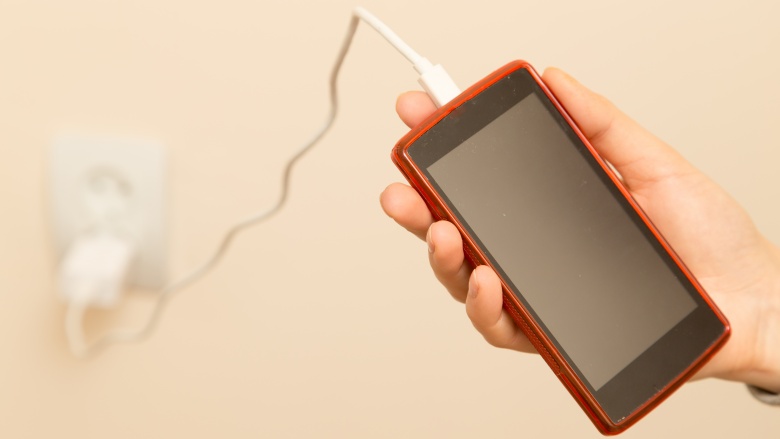Technology Myths You Probably Still Believe
Technological innovations require consumers to garner tons of knowledge about each new gadget coming down the pipeline. New information, however, is unfortunately often overwhelmed by disinformation. With that in mind, let's set the record straight about some things you probably thought were true about popular technology, but are nothing but bunk.
Macs can't get viruses
"A Mac isn't susceptible to the thousands of viruses plaguing Windows-based computers," claimed Apple on a promotional website back in early-2012. This marketing campaign led some consumers to incorrectly believe that Macs are immune to computer viruses, period. In truth, Macs are absolutely vulnerable to malicious programs, just not the ones PC users catch.
Apple backed off its vague no-viruses claim in mid-2012, after a Trojan virus infected about 550,000 of its computers. More recently, in March of 2016, researchers reported that Mac computers can also catch the Ransomware virus, which locks up certain files on a victim's computer and forces them to send the hackers money to release them. In other words, don't forgo that copy of Norton Anti-Virus at the Apple Store, and download shady stuff thinking you're safe because a disciple of Steve Jobs greenlit your lappy.
Leaving your device plugged in will damage its battery
Another common myth is that leaving your cell phone or laptop plugged in overnight will overcharge, and subsequently damage the battery. This may have been a problem with older batteries, but most devices now contain "smart" lithium ion batteries, that know when they're full and will stop charging at that point. So don't worry about unplugging your computer at night, unless it's like 20 years old.
It's also untrue that modern-day batteries have memory. True, it's inadvisable to charge older, nickel-based batteries before they fully drained. If you started charging these batteries at 25%, for example, then over time, they would only charge up to that level. Again, this is no longer an issue with lithium batteries. So, charge away!
Expensive HDMI cables are better
You can find HDMI cables priced as high as $40 at your local Best Buy store. Do you really need to shell out that much money just to hook up your PS4 to your HD TV? Some — mainly the salesperson in the store — will argue that the more expensive cables give you a better picture quality. This argument is generally untrue. There is no reason to think that one cable will facilitate a better picture if they meet the same spec. It's the same electricity, no matter how pricey and fancy we make the tube it travels in.
That being said, there are some areas, such as durability and warranty availability, that may place one cable above another. Nevertheless, we recommend that you first check out budget options before needlessly shelling out the cash for the more expensive alternatives.
World Wide Web = Internet
Many people use the terms "Internet" and "World Wide Web" interchangeably, but they are not synonymous. The U.S. Department of Defense founded the Internet in 1958, which broadly comprises both the hardware (servers, computers, etc.) and software that links the world together. The World Wide Web, meanwhile, was founded in 1989, as a way to transmit data by typing URLs into your browser bar. There are now many ways to shoot data across the Internet, including email, instant messages, etc. The Web is just one of these methods, so calling the Internet the World Wide Web is like calling all snakes pythons.
Tor and VPNs mask your identity
The Tor browser advertises itself as a way to surf the Internet anonymously, by encrypting traffic across Tor's servers. But is Tor's promise of total anonymity a realistic one? Probably not — it's hardly a foolproof system, after all. The U.S. government, for example, has plenty of ways of discovering your identity if you're doing something illegal. JavaScript, for example, can give way your IP address. Besides that, Tor is notoriously slow, so say goodbye to down-low streaming Westworld on your ill-begotten HBO Now.
Virtual Private Networks (VPNs) similarly promise anonymity, but also have their share of pitfalls, such as their users being vulnerable to having their logins and credit card information stolen by whoever runs the network. Just remember that there is no such thing as 100% anonymity on the Internet. If you're not doing anything illegal (and you shouldn't), and just complaining about movies on Reddit, then there is no compelling argument to use Tor or a VPN. Not that there's any compelling argument to use Reddit either, but still.
Incognito mode makes you anonymous on the Internet
One of the much-touted features of Google's Chrome browser is its Incognito mode. Firefox has a similar feature, simply entitled "Private Browsing." Both modes allow you to view websites without your browser recording your history or keeping cookies. Some users are under the false impression that this makes their online activities completely anonymous, but nothing could be further from the truth.
Although your browser doesn't track your history, your (ISP) (Comcast, AT&T, Verizon, etc.) still maintains a record of all the sites you've visited. We know this because Chrome tells you this when you enter Incognito Mode, not that anyone pays attention to warnings on the Internet. Moreover, Incognito Mode may not mask your browsing activities from other applications on your computer. So sadly, your attempts at stealthy surfing are about as secretive as a herd of elephants trying to sneak up on a timid squirrel.
Cell phones are dangerous to use at gas stations
Whenever you stop to refuel your car, you've likely noticed the signs adorning gas pumps that warn you to not use your cell phone. These warnings suggest that texting your girlfriend will cause an apocalyptic gasoline explosion. But is this realistic danger? The Federal Communications Commission points out that while it's theoretically possible for a cell phone battery to ignite gas, there are no proven incidents in which this has actually happened. In all likelihood, it's perfectly safe to check Twitter while filling your Honda Civic. Just don't check it while driving the thing, okay? Okay.
Henry Ford invented the automobile
Speaking of cars, it's time for a little history lesson that history keeps forgetting about. Some people mistakenly believe that American industrialist, and founder of the Ford Motor Company, Henry Ford, invented the automobile. This isn't true at all. Yes, Ford certainly popularized the car, beginning with the Model T in 1908, and his assembly production methods allowed his company to build cars relatively inexpensively. As a result, the car caught on fast in the United States. But the whole car thing wasn't his idea.
So, if not Henry Ford, then who did invent the automobile? Discounting steam-powered horseless carriages, the first gasoline-powered cars were invented by two German men, Karl Friedrich Benz (of Mercedes-Benz fame) and Gottlieb Daimler. Both men filed their car patents separately on the same day in 1886, which definitely proves the statement that great minds think alike.
Deleting a file means it's deleted
Dragging the Word document containing your Twilight fan fiction to the Trash or Recycle Bin on your computer, and then emptying the contents, will delete it forever, right? Not exactly. What you're actually deleting is the index information that points to the location of the file on your computer's hard drive. The actual file is still recoverable, unless you overwrite it on the hard drive itself. The computer will automatically do this over time, but there's no telling when this will happen, so it's best to just have the mindset that anything you put into electronic format will exist forever. We therefore recommend writing your fanfic on a yellow legal pad instead. Also, we recommend writing better fan-fiction. Like, Twilight? Really?
Cell phones cause cancer
As cell phones became commonplace, we began to hear rumors that they may cause cancer. The claim is that non-ionizing radiation, in the form of radio waves produced by the cell phone's antenna, can cause brain tumors. Fortunately, there is no evidence for this. The term "radiation" sounds scary, because we associate it with nuclear weapons, and other things that can cause cancer. The actual definition of radiation, however, is simply ... energy. It's energy emitted from any source, meaning radiation emits from literally everything in the universe, except for you at 9 AM on a Monday.
While some sources of radiation, like X-rays, gamma rays, and nuclear reactions, do produce ionizing radiation that can cause cellular damage to humans. But non-ionizing radiation, like radio waves and visible light, are generally not harmful unless you're exposed to a source significantly more powerful than what you'd receive from a cell phone.
You can't contract cancer from WiFi signals for the exact same reason, by the way. In other words, you can talk away and tap up your novel at Starbucks all you like, without any fear of glowing in the dark. Even though that would be pretty awesome.










